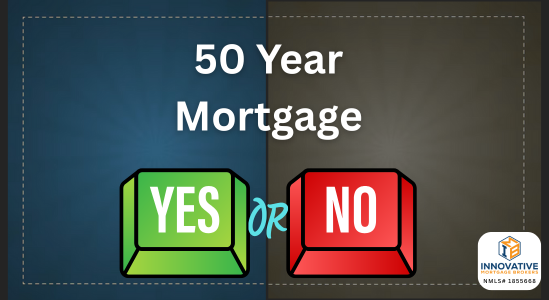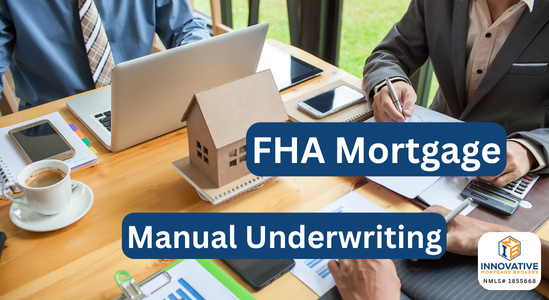Mortgage rate volatility, oil shocks, and why execution matters more than quotes When a war…
Seller Concessions – What are They and How do they Work

The real estate market has been a sellers’ market for the last few years, but the tide is changing, and in some areas the buyers now have the upper hand. Because of this, you may see more occurrences of seller concessions or sellers helping buyers with their closing costs.
When sellers don’t have buyers knocking down their doors, competing heavily for the same house, it can take longer to sell a home. As a result, sellers often do what they can to speed up the process, and to make the most money for their house, often helping buyers with the homebuying costs.
Here’s how it works.
What are Seller Concessions?
Seller concessions, sometimes referred to as seller assist is assistance from the seller to cover a buyer’s closing costs. Of course, they can’t always pay all the costs, and the amount varies by the loan program, but it’s a way to lure in more buyers to help them afford to close on the home.
Seller concessions could allow sellers to increase the home’s sales price while giving buyers credit at the closing to reduce the burden of out-of-pocket expenses.
For buyers, this means you’ll have a higher loan amount and pay more interest over the life of the loan. However, it reduces your out-of-pocket expenses, helping you close on a home sooner.
How Seller Concessions Works
To understand how seller concessions work, here’s an example.
You offer to buy a home for $250,000 and use FHA financing. In addition, you ask the seller to help you with $10,000 in closing costs. The seller agrees and increases the agreed-upon sales price to $260,000.
If the home appraises for at least $260,000, you may be able to use the seller concessions. This means you’d borrow a loan for a bit higher and pay for the closing costs over time as a part of your mortgage payment.
However, remember that your down payment requirement may increase. For example, if you put down 5% on the $250,000 sales price, you’d need $12,500 for the down payment. However, by increasing the sales price by $10,000, you’d need $13,000 down. This is still less than the closing costs, but something to consider.
How you can Use Seller Concessions
The sky’s the limit regarding what you can use seller concessions for; however, there are some things you cannot use it for, including:
- The down payment on the home
- To receive cash at the closing
Common uses for seller concessions include:
- Lender fees
- Third-party costs, such as appraisal, title, and attorney fees
- Property taxes
- HOA dues
- Mortgage insurance premiums
Limits to Seller Concessions
Each loan program has a limit to how much a seller can help. Government-backed loans, such as FHA, VA, and USDA loans, have set limits:
- FHA loans – 6% of the sales price
- VA loans – 4% of the sales price
- USDA loans – 6% of the sales price
Conventional loans have different guidelines based on your loan-to-value ratio. The more money you put down on the home, the higher the seller concessions you can have.
Here are the maximum seller concessions allowed:
- Borrow more than 90% – 3%
- Borrow 75% – 90% – 6%
- Borrow less than 75% – 9%
Pros and Cons of Seller Concessions
It might seem like a no-brainer to ask for seller concessions, but they have good and bad sides like everything else. Here’s what you should consider when making your offer.
Pros:
- You may lower your out-of-pocket expenses. This may allow you to buy a home sooner or keep more cash in your account for maintenance, repairs, and emergencies.
- You may be able to offer more for the house. If there is some competition for the home, or you know the seller wants a certain selling price, you may be able to offer it knowing you don’t have to pay as much at the closing.
- The difference in your mortgage payment will likely be small. For example, increasing your loan amount by a few thousand dollars may change your mortgage payment by only a few dollars.
Cons:
- Sellers may reject your offer. Some sellers don’t want to give seller concessions even in a buyer’s market and may reject your offer.
- You’ll pay more for the loan. Since you’ll borrow more, you’ll have a slightly higher mortgage payment and pay more interest over the life of the loan.
Lower Sales Price vs. Seller Concessions
You might wonder why you shouldn’t just ask for a lower sales price, especially in a buyer’s market.
Seller concessions are much more valuable if you’re pinching pennies and having trouble coming up with the cash to close. Depending on the sales price, seller concessions could be worth thousands of dollars. That’s money you don’t have to come up with and can either keep in your savings account or not have to worry about to close on the loan.
However, if you have a lower sales price, you’ll still need the money to close, which can be 3% – 5% of the loan amount, plus your down payment. So your down payment will be slightly lower because of the lower sales price, but the change in monthly payment will be negligible, making it harder to afford the home.
Final Thoughts
So are seller concessions right for you?
Look at the big picture. Determine if you’d rather pay more interest over the loan’s term and have a slightly higher mortgage payment or pay the costs upfront. If your home purchase is for the long-term, paying the costs upfront usually makes more sense.
However, if this is a short-term purchase or you don’t have the cash to close, seller concessions can help you own a home much faster. The key is finding a willing seller and working out a deal that works best for both parties.
Banks and other financial institutions can be limited in their options and members of staff may not be able to provide you with as much information or support. With the help of Innovative Mortgage Brokers, customers that need a mortgage in PA and FL can enjoy the benefits of access to dozens of lenders, unbiased advice on which options are best suited to them and guidance through the entire process. Not only is this convenient, but it also allows customers to gain valuable market insights that they might not be aware of without a broker’s help.
Looking for options when it comes to your mortgage can be overwhelming, but working with a mortgage broker has several benefits that make the process smoother. At Innovative Mortgage Brokers we help you find options that suit your budget and situation, so you don’t have to do the research yourself. If you are looking for a mortgage in Pennsylvania or Florida, we will guide you through the long list of lenders and options in a professional way. We can also help explain complex documents as well as negotiate better deals for our clients. Generally, at Innovative Mortgage Brokers our Loan Officers will help you save both time and money.




